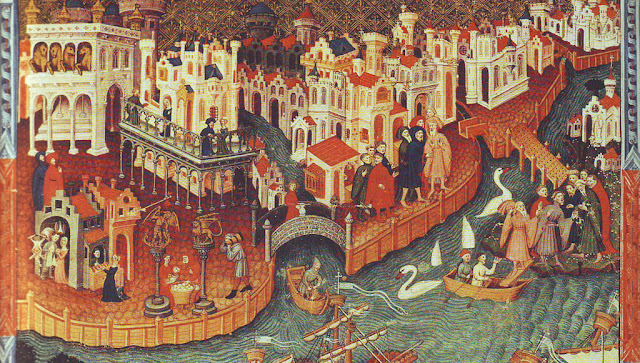Hi, I’m Francesco. As you may have noticed in my previous posts, I love history and today I will tell you about five fake news about a very long period of time which is considered a dark and desolate period: the Middle Age.
There were horrible tortures in Middle Ages
It is a common belief that a lot of horrible and inhuman tortures were invented in the Middle Ages, but there isn’t any evidence of this; yes, tribunals used to torture people in trials, but those tortures were harmless and were done only as formality. Ugly tortures (like torture wheel, virgin of Nuremberg and others) were invented later or are historically fake, as the next point in the list.
Crusaders’ wives used to wear chastity belts when their husbands were in the Holy Land
The Church and the monks used to burn everyone who thought differently from them
This is simply incorrect; we probably have this vision of the Church because of Galileo’s famous trial and because of the famous novel written by Umberto Eco “Il nome della Rosa” where there are people burnt at the stake. In reality, the Roman Church was favourable to scientific and social progress. Just to say, the current calendar was instituted by Pope Gregorius the Thirteenth.
Ius Primae Noctis (Right of the first night)
This is a frequently discussed topic: according to legends, a local noble man could decide to have sex with a newly married wife on her wedding night. Modern historians have proved that it’s only a strange story probably invented in the Romantic Age.
People consider it a dark age without commerce or cultural exchanges
The Middle Ages are considered a Dark Age (literally), but it is such a long period of time that you can't generalize. Longbeards’ Italy doesn't have a lot in common with Dante’s Florence. Especially in the late Middle Ages, merchants and
travellers were everywhere; banks were invented at that time in communal Italy.
You can ask: where do these myths come from?
These myths were introduced in the Renaissance and
in the Victorian Age to make contemporary people enjoy their times; if someone
thought that before him there were only wars and famines, he would probably be grateful
to his monarch and to the times he lived in.
Francesco G., 4sc







No comments:
Post a Comment